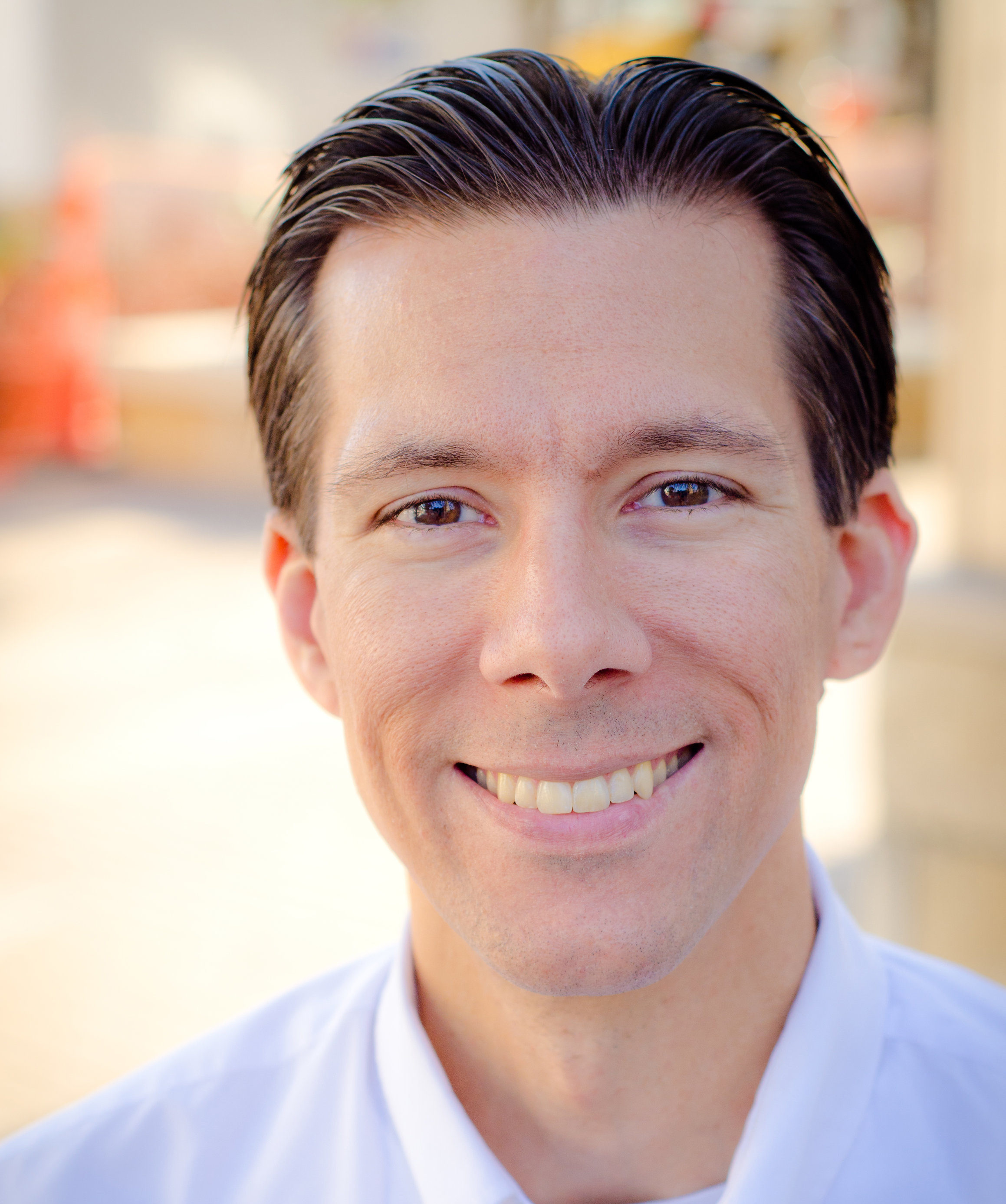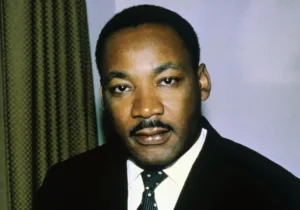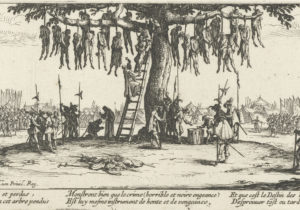In July something called the Edmund Burke Foundation is hosting a conference on “National Conservatism.” The conference is dedicated to the idea that “the past and future of conservatism are inextricably tied to the idea of the nation, to the principle of national independence, and to the revival of the unique national traditions that alone have the power to bind a people together and bring about their flourishing.”
The lineup of speakers is an odd grab-bag. It includes policymakers like John Bolton, the national security advisor, and Michael Doran, who served in the George W. Bush administration. It includes intellectuals like Yoram Hazony, author of The Virtue of Nationalism; Rich Lowry of National Review; Rusty Reno of First Things; and Patrick Deneen of Notre Dame. It includes a few friends and colleagues of mine and a few contributing editors to Providence. And it includes Tucker Carlson of Fox News and Ryszard Legutko of Poland’s Law and Justice Party.
You may be forgiven for wondering what “National Conservatism” is. The idea is more common in Europe and refers to an Old World version of conservatism. American conservatism (1955 – 2016) emphasized the ideals of classical liberalism, limited government, and maximal liberty. European conservatism tends to emphasize things like shared culture, heritage, land, or language. Now a number of Trump-friendly policymakers, scholars, and others are trying to appropriate the label to give their movement more depth.
I welcome the effort to give nationalism more depth because one of the more maddening features of political debate over the past few years is the difficulty in nailing down what exactly the nationalist side believes. In that spirit, I have some questions for the advocates of National Conservatism. These are genuine questions, not asked in snark (for the most part), because I have yet to hear a satisfying discussion, much less an answer, from the advocates of nationalism. I would love to hear any of the presenters at this conference address these questions.
***
First, you say you believe that “the past and future of conservatism are inextricably tied to the idea of the nation, to the principle of national independence.” Can you please explain what you believe threatens these principles? Why is it necessary to hold a conference dedicated to sovereignty? Sovereignty is firming entrenched in international law. You seem to have won this debate several centuries ago, and I do not understand why there is an urgent movement afoot to reaffirm a principle that no one really disagrees with.
We hear a lot about the threat of “globalism” or how the “liberal international order” is inconsistent with national sovereignty. That was the theme of President Trump’s speeches to the United Nations in 2017 and 2018. Do you agree? If so, again, please be specific. In what ways is American sovereignty under threat from globalism, and from whom?
So far as I am aware, no world body dictates what language we must speak or what religion we must practice. There are no foreign troops occupying our territory and no foreign power controlling our government. The United States is not party to any treaty it did not sign of its own volition, and many international agreements have actually augmented American sovereignty by increasing our power and influence around the world. As I never tire of saying, the liberal order is the outer perimeter of American security; how does this threaten our sovereignty? If your complaint is mainly about the EU—well, fine and good, but what does that have to do with American sovereignty?
***
I have more questions about your other, larger claim: you think “the revival of the unique national traditions…alone have the power to bind a people together and bring about their flourishing.” This is a very big claim.
First, which traditions? Can you please be specific? Are you defining our traditions in cultural, ethnic terms? Do you mean British traditions? The traditions of European or Western civilization? That would be odd because, as I’m sure you know, those traditions aren’t necessarily the traditions of a third of Americans who aren’t of European descent. If you define “our traditions” and “Western traditions,” that would seem to exclude a lot of Americans. The same is true no matter what thing you pick as the defining feature of our traditions. Christianity? There are lots of non-Christian Americans. English-speakers? Most of those aren’t American at all; they live in India.
Maybe you mean that Western traditions are important because they were the originating conditions of the American experiment; therefore, you might argue, in order to stay true to American ideals, we have to stay true to our Western heritage. If that’s what you’re saying, I’ll agree with the first part but not the second.
America has a Western heritage, but there are lots of examples of non-Western states that nonetheless have robust and strong democratic institutions. Western civilization (or more specifically, British Protestantism) was the background condition to the original appearance of liberal democracy, but it is emphatically not the necessary prerequisite to democracy’s adaption and survival (I’m confident you read my article on that subject). America is becoming more culturally and religiously diverse; that says nothing at all about the survival and health of American democracy.
And so maybe your argument has nothing to do with democracy. Maybe you’re saying we need to stay true to our Western heritage just because it is our heritage. You like the West and want to keep it. I’ll agree with this up until the moment you get the federal government involved. Wanting to cultivate the best parts of our Western heritage is a fine cultural project. It is also none of the federal government’s business. (Local government, through its control over public school curricula, has a small role to play here.)
If you think the federal government’s role is to propagate an official cultural template for the nation, then we differ, and I ask simply that you take “conservatism” out of the title of your conference on “national conservatism.” Do you really think it is wise to use the government as a blunt-force instrument to stop change or to rearrange culture along the lines of your preferred blueprint? And I would ask, Can you explain your nationalist movement as anything other than a fearful backlash against cultural change?
There is nothing conservative (in the American sense) about using the federal government as a tool for cultural propaganda. In fact, you end up violating the tenets of the American experiment when you do that because you are clearly communicating that there are some Americans who are the “real” or “better” Americans because they conform to the government’s preferred culture. I’ll leave to your imagination who the other Americans are.
If you reply that the traditions you have in mind are simply “American” traditions, then I go back to asking what the threats are against this tradition that you seem so concerned about. The American tradition is defined first and foremost as the ideals of the Constitution and the Declaration. Moreover, America has a very long tradition as an immigrant nation, a melting pot and patchwork quilt of the world, a haven for the tired, poor, huddled masses yearning to breathe free. America is defined by its amalgamation of cultures around the world into a country based on liberty; it invented cultural appropriation and built a civilization of freedom on it. If these are our traditions, globalism is not a threat; in fact, globalism is the fruit of our traditions. We have exported our ideals to the world and built a system based on it from which we continue to benefit. There is indeed a threat to such ideals in our day, but the threat is not coming from globalism.
***
Finally, I want to ask about your claim that national traditions “alone have the power to bind a people together and bring about their flourishing.” I’m bothered by this claim. I don’t think it’s true at all. You’re making a claim about human psychology and spirituality that I think is worryingly wrongheaded, foolish, and frankly destructive.
So one question I might have is, Have you read a book of history or psychology? I apologize for the snark, but I really wonder about this claim that national identity is essential to human flourishing when there is so little evidence for it. There are a lot of sources of human flourishing, and most of them revolve around family, church, local communities, friendships, education, physical health, the life of the mind, acts of service, practices of prayer and meditation, and more. The idea that the nation “alone” has the power to bring about my flourishing is bizarre and frankly sort of frightening.
So my next question is, Am I allowed to believe differently? You’ve asserted a theory about the sources of human flourishing. If you get your way and the government goes about governing according to national conservative principles, will I still be allowed to believe that my flourishing doesn’t come from my national identity or my participation in whatever national traditions you intend to cultivate? Do you plan to privilege those who participate in your nationalist rituals and punish or sideline those who don’t? That’s how most nationalist governments do things, after all.
I’d like to know the boundaries of what kind of behavior is allowed for non-nationalists in your regime. I don’t believe that the nation is the thing that should bind people together or that it is capable of bringing about my flourishing. I think unity and flourishing come from Jesus, and I worship him in my church, which includes non-Americans, Americans not of European descent, people who don’t speak English, and a lot more besides. That’s where I pursue my flourishing. Will I be allowed to do so under your government? Do you plan to compel me to pursue flourishing within your nationalist project? Historically, every effort to make national identity the source of our identity and flourishing ends poorly. Theologically, I think it is a kind of idolatry.
The effort to dress up nationalism, to find a new label of National Conservatism, to make it respectable and give it intellectual depth, is gross. Five years ago, none of this stuff would have been taken seriously, but now we have books and conferences devoted to the subject. Just because there is a nationalist and populist wave sweeping the globe doesn’t mean we have to start justifying it, sympathetically explaining it, or offering defenses for it.
If anything, the opposite is true; we should be the ones readiest to challenge the prevailing trends of the day, not offer excuses for them. Ignoring the obvious hucksters and charlatans involved in the effort, there are a lot of well-meaning and thoughtful people here who for some reason think the most urgent calling of our day is to defend nationalism. So my last question is, Why on earth?
Paul D. Miller is a professor at Georgetown University, a senior nonresident fellow at the Atlantic Council, and a research fellow with the Ethics and Religious Liberty Commission.







 Live in the DC area? Sign-up for Providence's in-person events list!
Live in the DC area? Sign-up for Providence's in-person events list!